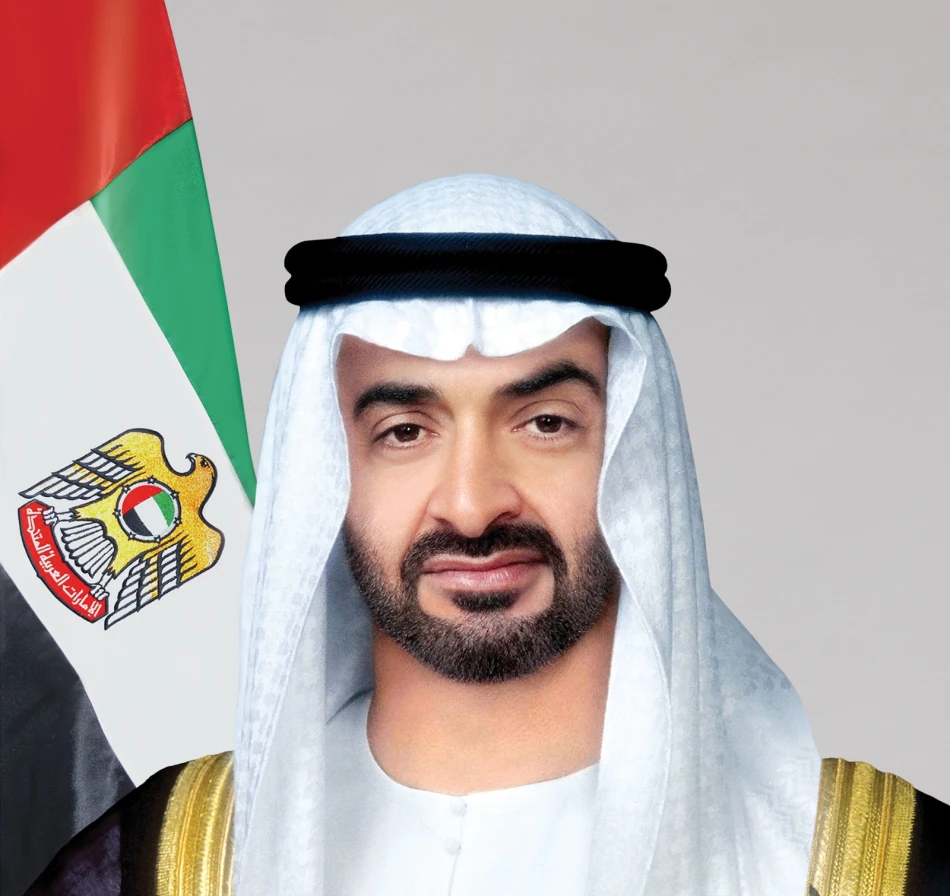
UAE Leader Celebrates Khalifa's Birthday, Unveils AI Model 'K2 Think' for Innovative Solutions
UAE Challenges Global AI Giants with Revolutionary Open-Source "K2 Think" Model
The United Arab Emirates has unveiled K2 Think, an advanced open-source AI reasoning model that promises to rival systems ten times its size while offering superior efficiency and real-world applicability. The announcement, blessed by UAE President Sheikh Mohamed bin Zayed Al Nahyan, positions the Gulf nation as a serious contender in the global AI race dominated by American tech giants.
A Strategic AI Milestone for the Emirates
The K2 Think model represents more than just technological achievement—it's a calculated move in the UAE's broader strategy to establish itself as a global AI hub. By focusing on reasoning capabilities, one of the most challenging aspects of artificial intelligence, the Emirates is targeting the same frontier that has made models like OpenAI's GPT-4 and Google's Gemini so valuable.
The timing of the announcement, coinciding with the birthday of the late Sheikh Khalifa bin Zayed Al Nahyan on September 7th, underscores the UAE's commitment to honoring its technological legacy while pushing forward into new frontiers.
Open-Source Strategy: A Bold Market Play
Unlike the closed, proprietary models developed by Silicon Valley giants, K2 Think embraces an open-source approach. This strategic decision could prove transformative for several reasons:
Competitive Advantage Through Accessibility
Open-source AI models allow developers worldwide to modify, improve, and deploy the technology without licensing fees or usage restrictions. This approach mirrors the success of models like Meta's LLaMA series, which gained rapid adoption precisely because of their accessibility.
For the UAE, this strategy serves multiple purposes: it accelerates global adoption, attracts international AI talent to Emirates-based institutions, and positions the country as a collaborative leader rather than a gatekeeping competitor.
Efficiency Over Scale
The claim that K2 Think matches or exceeds models "ten times its size" addresses one of the industry's most pressing challenges: computational efficiency. As AI deployment costs soar—with some estimates suggesting that running ChatGPT costs OpenAI over $700,000 daily—more efficient models could reshape the economics of AI services.
Strategic Partnership: Academia Meets Industry
The collaboration between Mohamed bin Zayed University of Artificial Intelligence (MBZUAI) and G42 Group exemplifies the UAE's hybrid approach to AI development. This partnership combines:
Academic rigor from MBZUAI's Institute for Foundation Models (IFM), which provides cutting-edge research capabilities, with industrial expertise from G42, a prominent UAE technology conglomerate with extensive AI infrastructure and market reach.
This model contrasts sharply with the purely corporate approach of American AI leaders and the state-driven initiatives seen in China, potentially offering a more sustainable path for smaller nations seeking AI sovereignty.
Regional and Global Implications
Gulf Competition Intensifies
The K2 Think announcement escalates AI competition within the Gulf region. Saudi Arabia has invested heavily in AI through its NEOM project and partnerships with companies like SenseTime, while Qatar has focused on AI applications for its World Cup legacy and smart city initiatives.
The UAE's open-source approach could prove more sustainable than purely capital-intensive strategies, especially if it succeeds in building a genuine developer ecosystem around Emirates-based AI research.
Challenging the US-China Duopoly
By developing indigenous AI capabilities, the UAE joins a growing list of nations—including the UK, France, and Singapore—seeking to reduce dependence on American and Chinese AI technologies. The success of K2 Think could demonstrate that smaller, well-resourced nations can compete in advanced AI development.
Market Reality Check
While the UAE's AI ambitions are impressive, several factors will determine K2 Think's actual impact:
Performance validation will be crucial. Independent benchmarking against established models like GPT-4, Claude, and Gemini will determine whether the efficiency claims hold up in real-world applications.
Developer adoption represents another critical test. The success of open-source AI models depends heavily on community engagement, documentation quality, and ease of implementation—areas where established players maintain significant advantages.
Sustained investment in AI research requires long-term commitment. The UAE's relatively small population means it must attract and retain international talent to maintain competitive research capabilities.
The Broader AI Sovereignty Movement
K2 Think reflects a global trend toward AI sovereignty, where nations seek to develop indigenous capabilities rather than relying on foreign technology providers. This movement has gained momentum due to concerns about data privacy, national security, and economic dependence.
The UAE's approach—combining substantial investment, international partnerships, and open-source philosophy—could serve as a model for other nations pursuing similar goals. Success would validate the idea that AI leadership isn't exclusively reserved for superpowers with massive populations and tech ecosystems.
As the global AI landscape continues evolving rapidly, the UAE's K2 Think represents both ambitious technological development and shrewd geopolitical positioning. Whether it can deliver on its promises will significantly influence how smaller nations approach AI sovereignty in an increasingly competitive global arena.
Most Viewed News

 Sara Khaled
Sara Khaled






